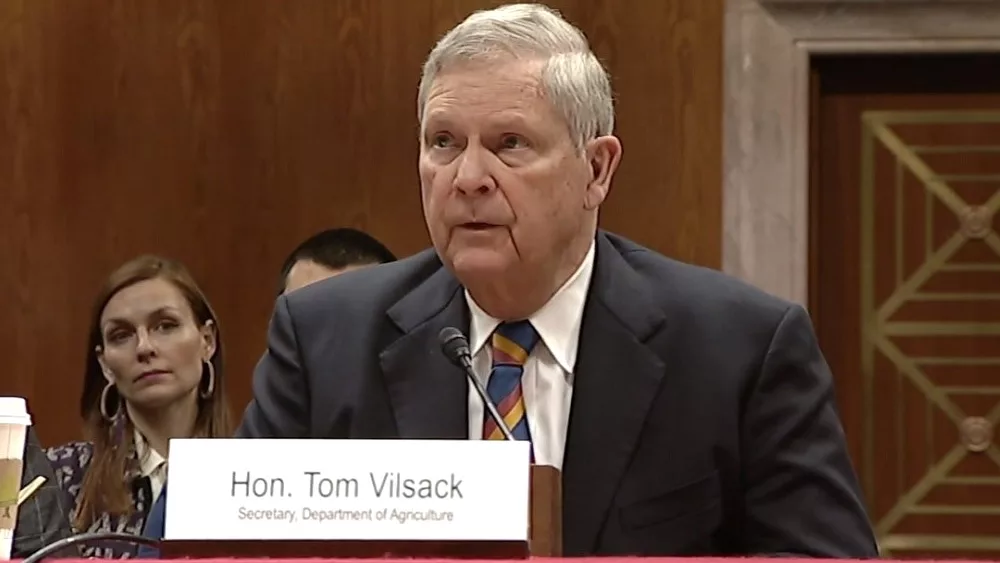More sugar beet farmers in the Saginaw Bay Watershed will be able to try an innovative conservation practice known as strip tillage to improve soil health and reduce soil erosion without financial risk, thanks to a new grant being awarded today to The Nature Conservancy (TNC) and other partners from the U.S. Department of Agriculture (USDA).
Strip tillage is an underutilized method of farming that provides significant soil savings over conventional tillage methods but can often be perceived as cost prohibitive or too risky to growers. The USDA awarded $1.9 million to the Saginaw Bay Accessing Subsidized Strip-Till Equipment Trial (ASSET) Program with another $1.9 million matched by partners, including TNC with funding from major philanthropic support in Michigan, such as the Cook Family, C.S. Mott, and Meijer foundations.
ASSET will develop and deliver a competitive incentive package to Saginaw Valley sugar beet producers – comprised of financial assistance, enhanced technical assistance, peer learning networks and assistance in acquiring specialized equipment to mitigate the farmers’ risks of investing in strip tillage.
“Our team at The Nature Conservancy is honored to have been chosen to steward this new initiative and the funds USDA is investing into the Saginaw Bay Watershed,” said Ben Wickerham, TNC’s Saginaw Bay project manager. “We are thrilled to begin work on this new initiative that will deliver conservation outcomes in a new and very unique way by addressing barriers to accessing new conservation farming equipment.”
The financial and technical risks this program seeks to reduce have been identified as leading barriers to long term conservation adoption in the Saginaw Bay Watershed – especially amongst sugar beet growers. In addition to financial incentives, this program also will equip new adopters with a robust supplement of technical assistance, including experienced farmer mentors, subscriptions to strip-tillage associations, and boots-on-the-ground assistance from TNC and other technical service providers to ensure successful transition and persistence into strip till farming.
Ultimately, this program seeks to catalyze the purchase of 10 new strip till implements within the watershed, thus helping at least 10 sugar beet farms move toward a more conservation-friendly mode of farming, Wickerham noted. He said this strategy will achieve 5,000 to 10,000 acres of direct conservation and holds the potential for lasting and far-reaching “indirect” conservation across the roughly 150,000 acres of sugar beets grown in Michigan.
Wickerham said this project would not be possible without the significant contributions being made by partners.
“These partners – Michigan Sugar Company, Environmental Tillage Systems, and Blue Water Conservation District – have demonstrated a vested interest in ensuring the expansion of sustainable farming practices across the Saginaw Bay Watershed,” he said.
Leaders at one partner organization, Michigan Sugar Company, agree this is a win for people and nature.
“As a grower-owned cooperative, Michigan Sugar Company is always researching ways to operate more sustainably, and this initiative adds another important resource for our nearly 900 shareholders who annually plant, grow and harvest our sugar beets,” said Jim Ruhlman, executive vice president of Michigan Sugar Company. “In producing our world-class crop, we want to continue to be good stewards of our land and water and this program gives our farmers the opportunity to see, first-hand, how this particular conservation practice works and impacts their operations.”
More information will be released in the coming months through workshops and other public announcements.
The Nature Conservancy is a global conservation organization dedicated to conserving the lands and waters on which all life depends. Guided by science, TNC works to create innovative, on-the-ground solutions to the world’s toughest challenges so that nature and people can thrive together. Learn more online at nature.org/michigan.
Source: The Nature Conservancy news release





